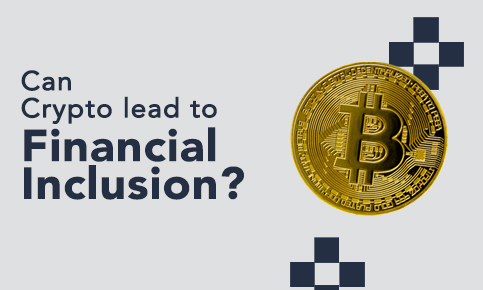Crypto was introduced to the world in the year 2009 as Bitcoin that aimed to become a decentralized mainstream peer-to-peer payment network and digital currency. Since, several other crypto currencies were introduced that function similar to capital market. Individuals can buy and sell these digital currencies swiftly and real-time which gave rise to the possibility that crypto can be a catalyst towards a financially inclusive society.
Today, 2 billion individuals stand unbanked globally of which, 190 million are from India. Crypto can be an aggregator in serving this population and providing them banking solutions. Since crypto was initially created with the aim to change the way we create, store and transfer value, with ease on regulatory framework in India, crypto can help boosting financial inclusiveness.
Most of the financially excluded individuals reside in developing regions but these regions also have high Gen Z and tech-savvy population. According to reports, 8% of India’s Gross Domestic Product (GDP) comes from its IT industry. Being said that, India has commendable technical knowledge to create and invest in blockchain instruments and at present, India stands at 2nd place in crypto.
Crypto is enabling individuals to contribute to the economy. It is increasing their chances of investing more thereby resulting in increased savings. Since crypto is seen as the future of currency, it poses as a profitable bet for individuals looking to increase their savings. As per reports, India witnessed an increase in crypto trading during the lockdown taking the number to $10-30 million daily.
A hotbed of global and open financial experimentation, crypto is tangible, programmable and a modular technology focused on value store, peer to peer micropayment, lending, price discovery, market making instrument. This allows individuals to use it in several ways than hard cash.
How is it leading to financial inclusiveness?
- Blockchain addresses high fees issues by enabling almost real-time and accurate payments, thus reducing transactional costs and boosting speed.
- It facilitates a decentralized approach and helps in managing financial entitlements.
- It reduces the risk quotient thereby reinforcing trust amongst two participating parties.
- India being the world’s largest recipient of remittances, blockchain can boost easy cross order remittances.
- It can serve as a hedge against inflation and currency devaluation.
Cryptocurrency adoption is essential for a financially inclusive society but new technologies don’t always make the cut immediately. With introduction of more crypto-startups, exchanges, applications etc., people will eventually make the big shift and allow a new system of payments. Moreover, from a regulatory point of view, forming a crypto-friendly space is also imperative to boost its usage.

